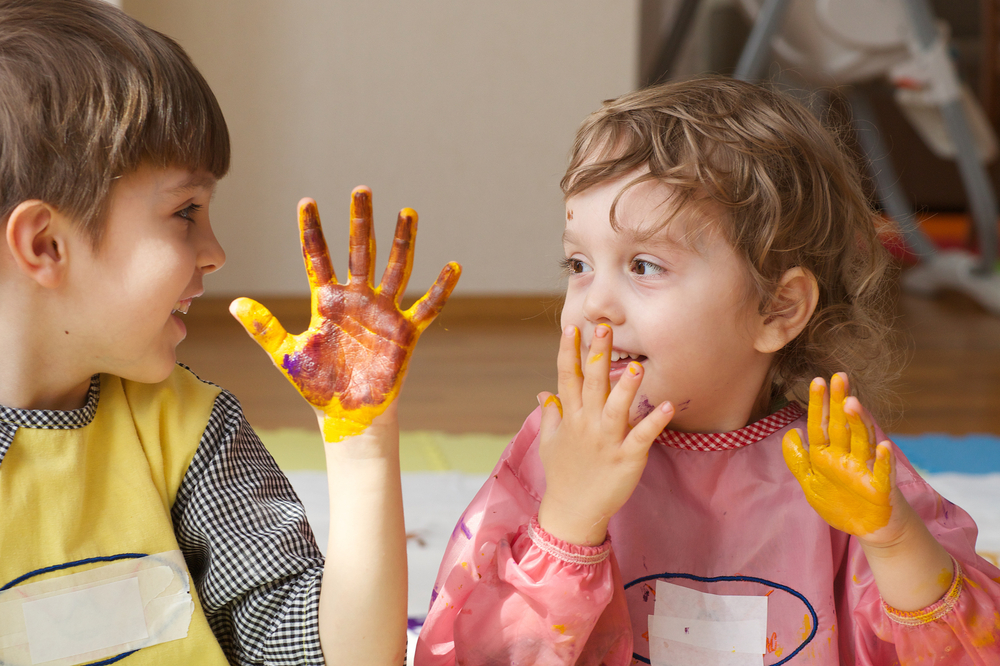Counting skills Math Worksheets for Ages 4-6
335 filtered results
-
From - To
Discover our engaging Counting Skills Math Worksheets designed specifically for children aged 4-6! Our worksheets promote essential early math skills through fun and interactive activities that make learning enjoyable. Young learners will practice counting, number recognition, and more, with colorful illustrations and themes that capture their imagination. These resources support early childhood development and align with educational standards, making them perfect for home or classroom use. Help your child build a solid foundation in math while fostering a love for learning. Explore the variety of worksheets available and watch your little mathematician grow in confidence and abilities!
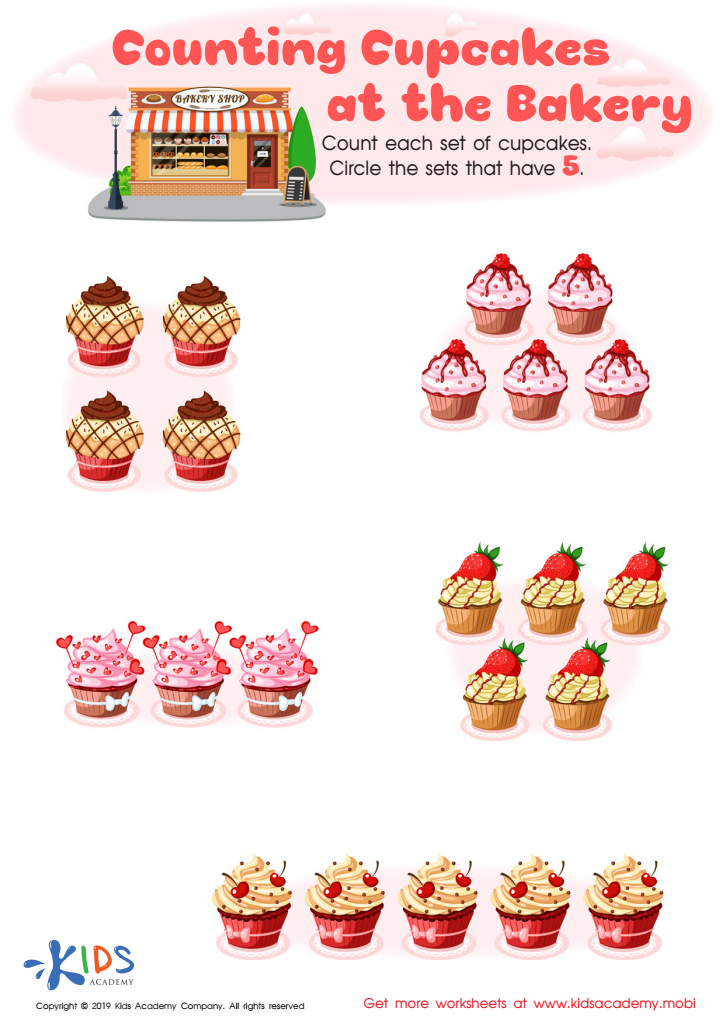

Counting Cupcakes Worksheet
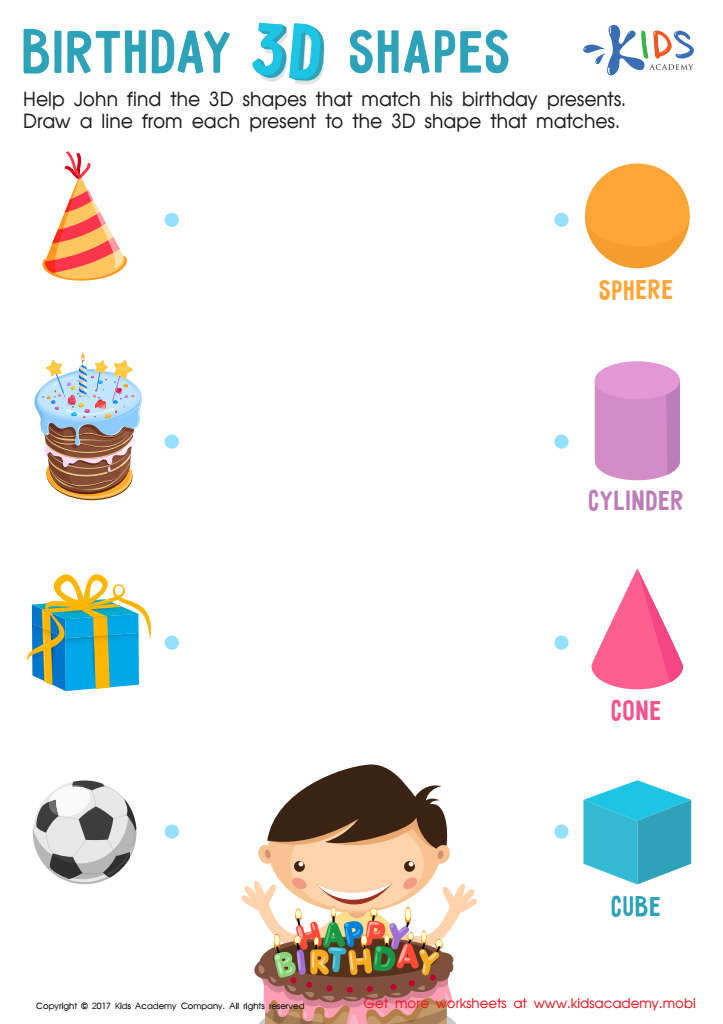

Birthday 3D Shapes Worksheet
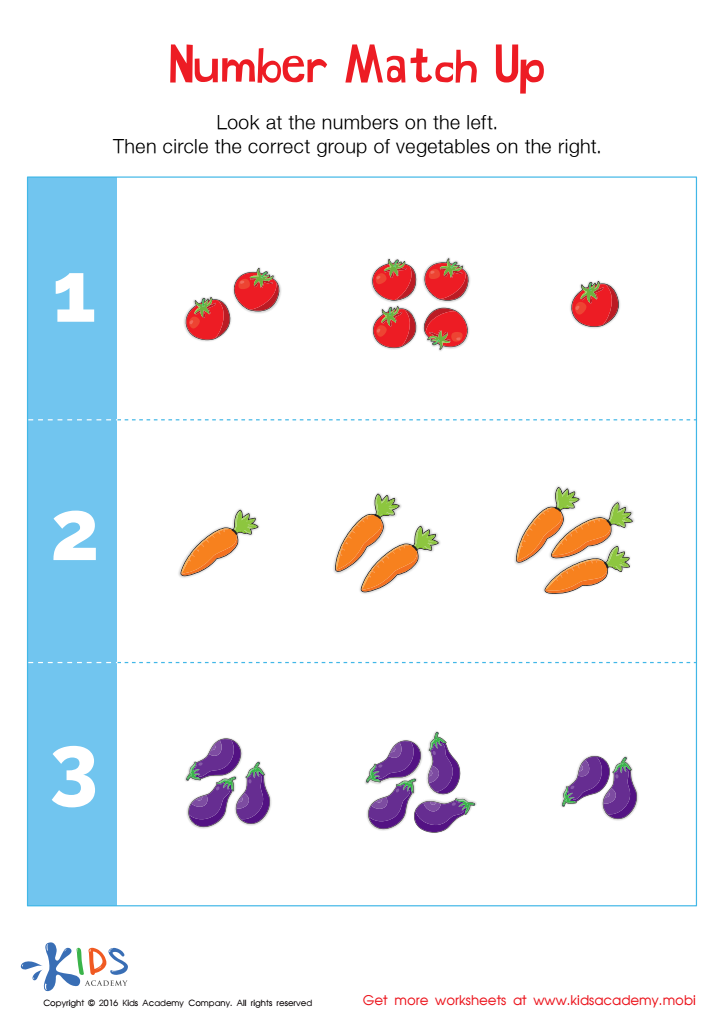

Number Match Up Worksheet
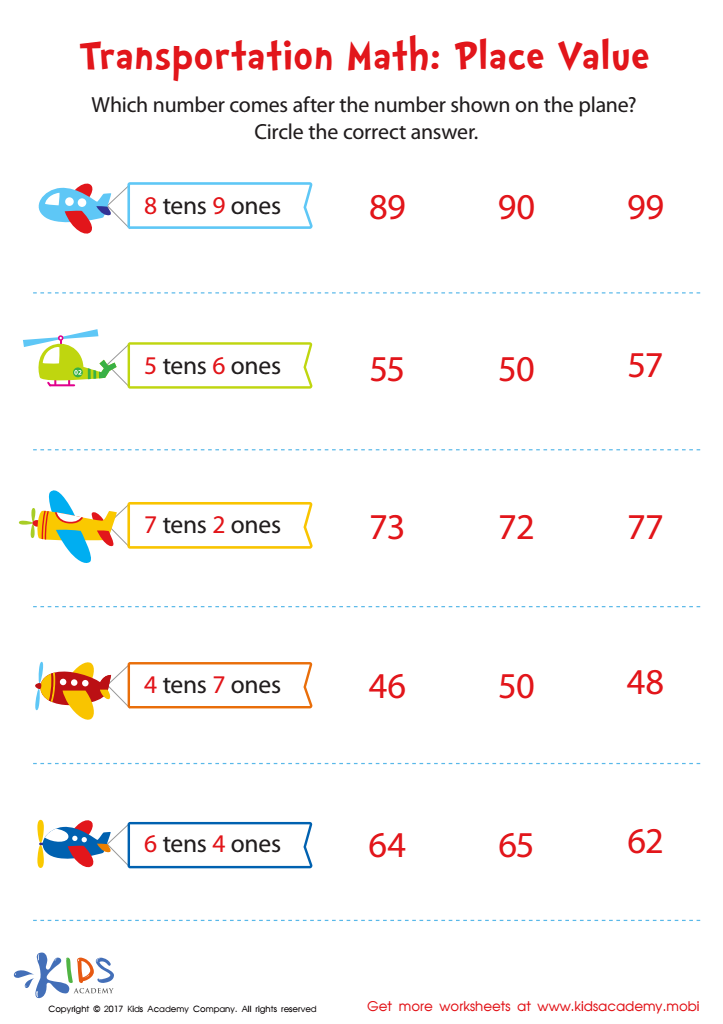

Transportation Math Printable
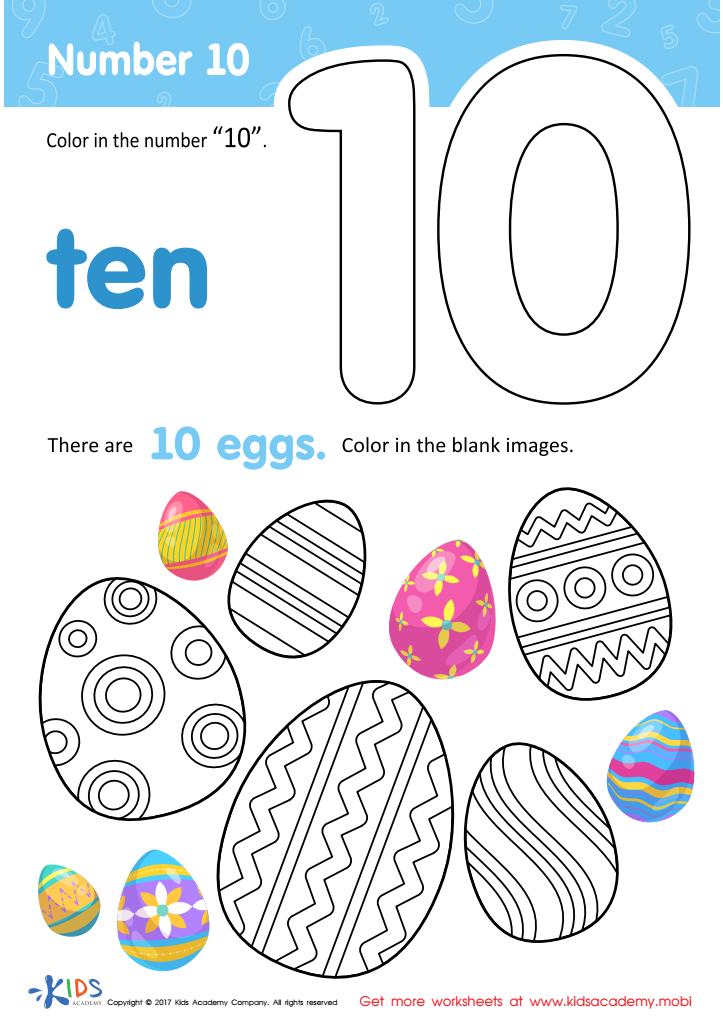

Number 10 Printable
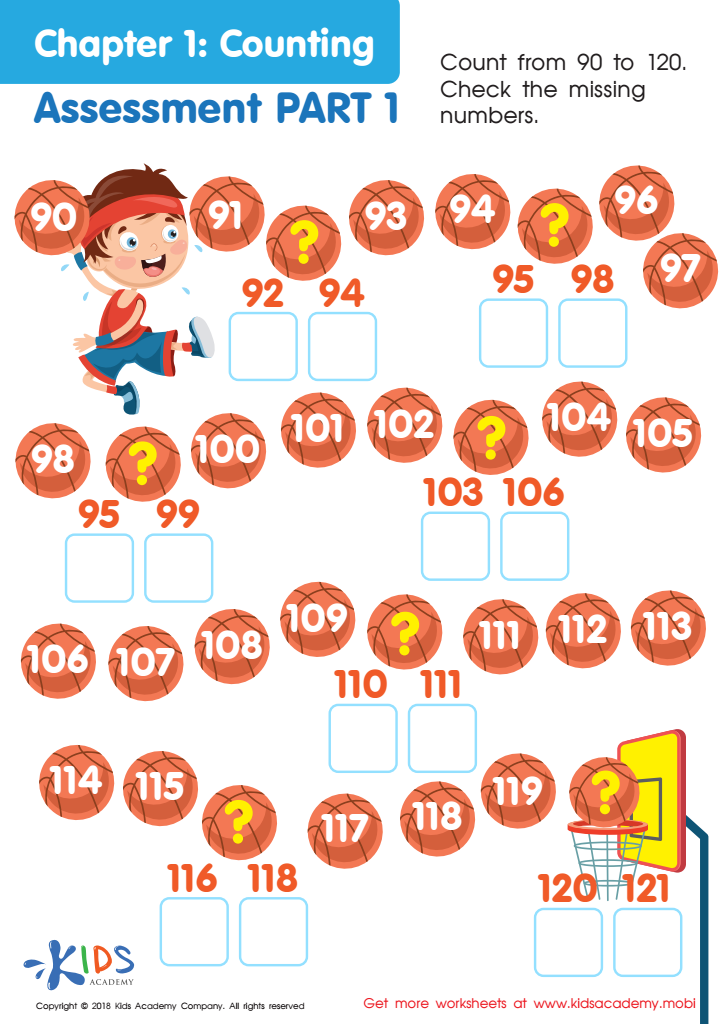

Counting Past 1: Assessment 1 Worksheet
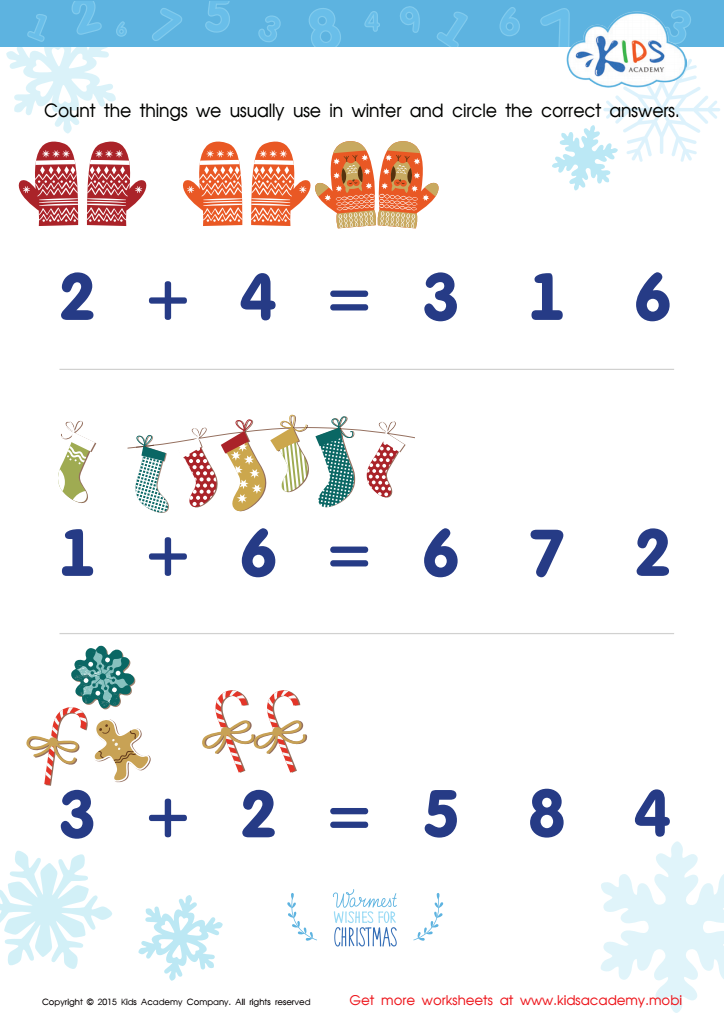

Count Winter Things Worksheet
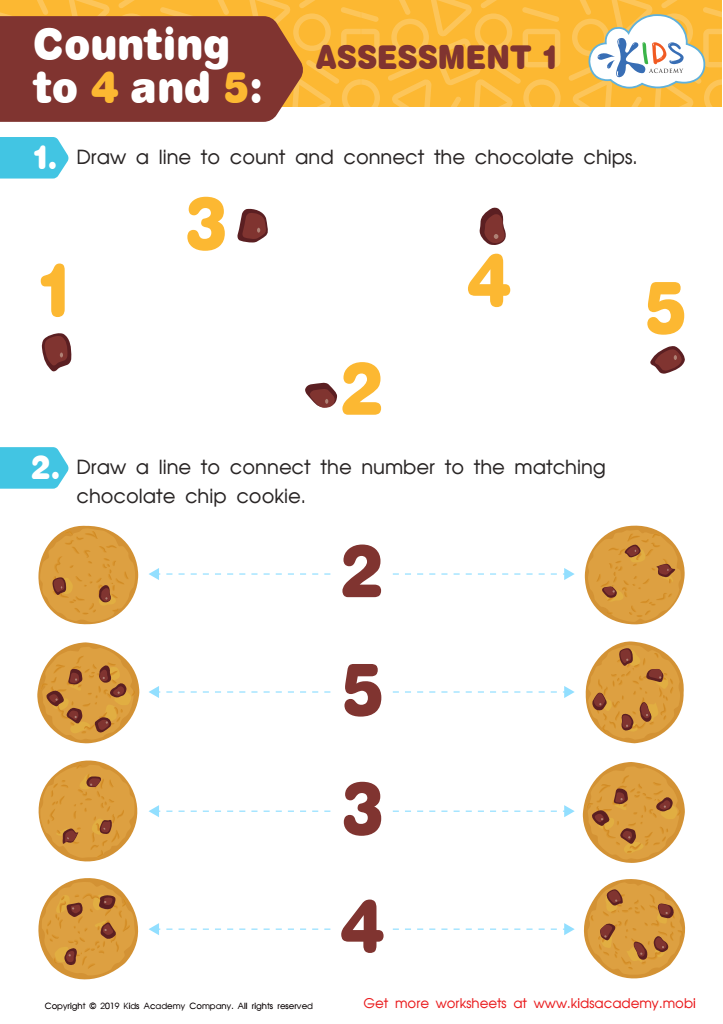

Counting to 4 and 5: Assessment 1 Worksheet
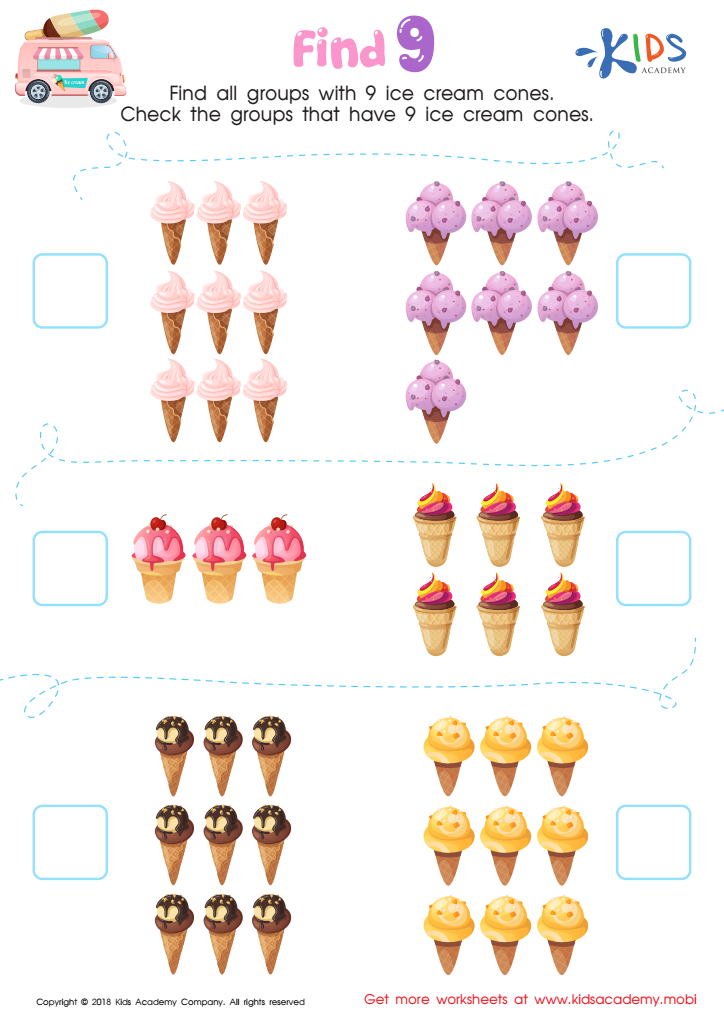

Find 9 Worksheet
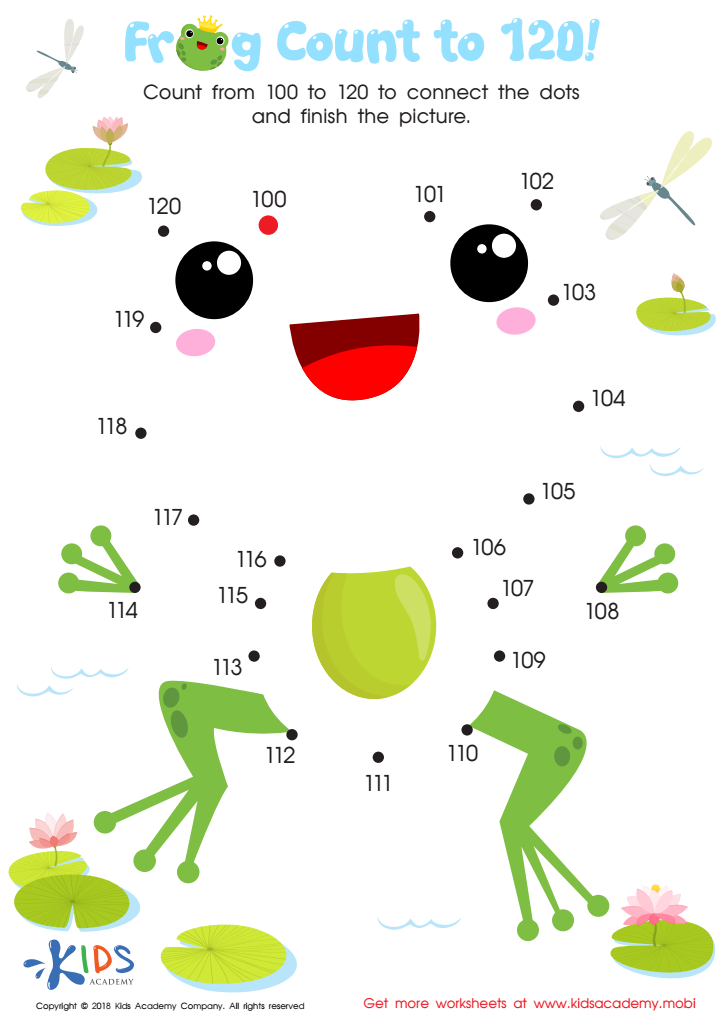

Frog Count to 120 Worksheet
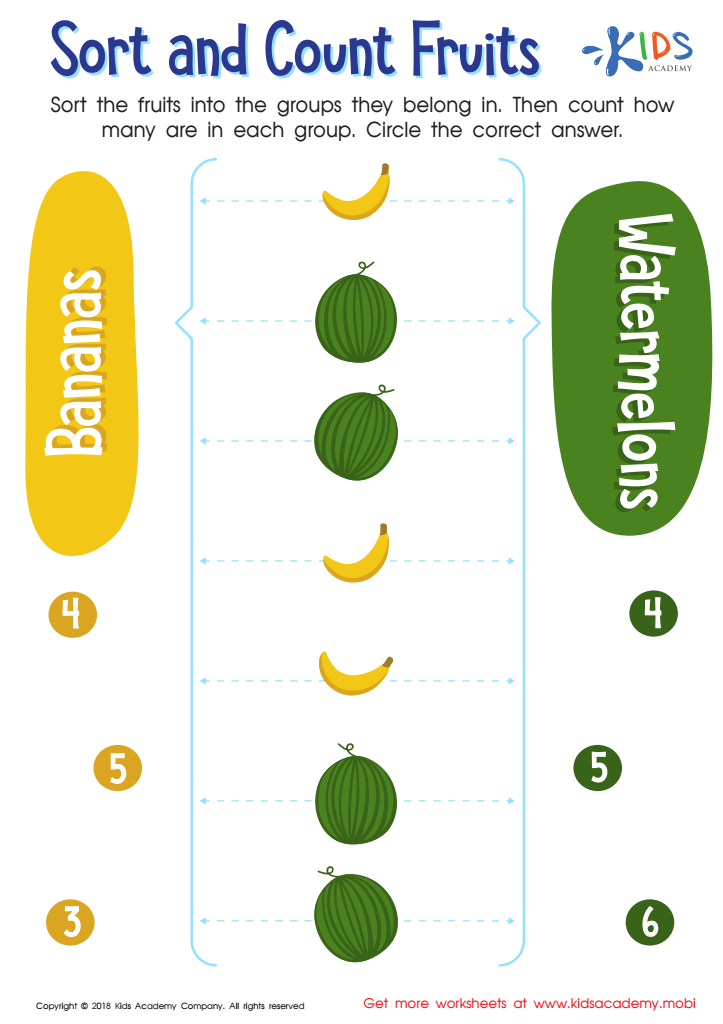

Sort and Count Fruits Worksheet
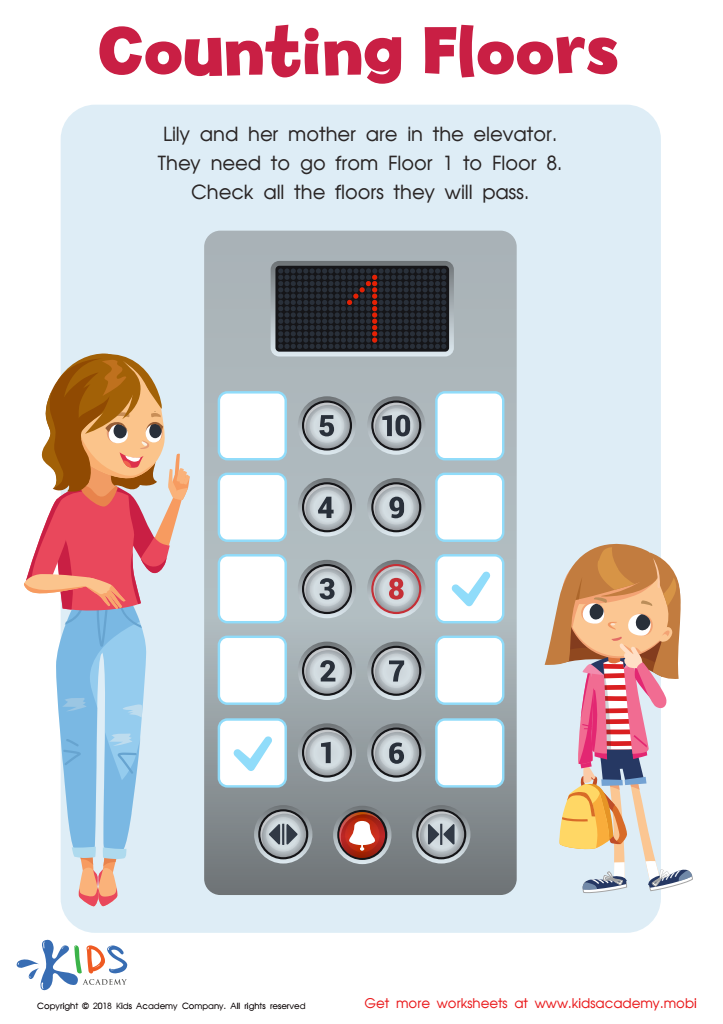

Counting Floors Worksheet
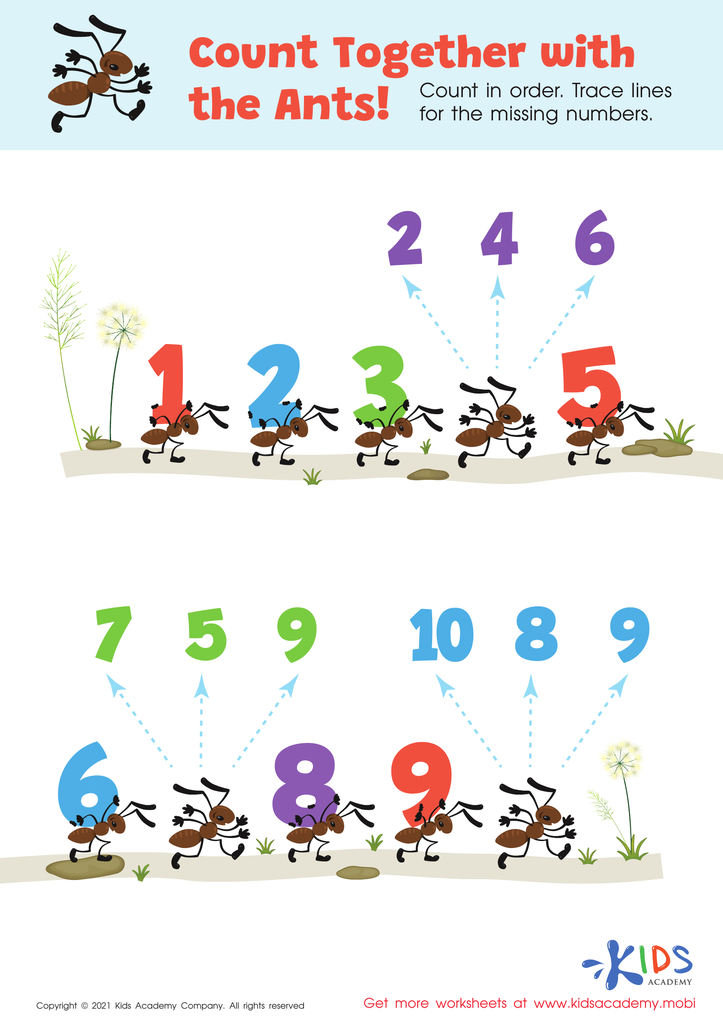

Count Together with the Ants Worksheet
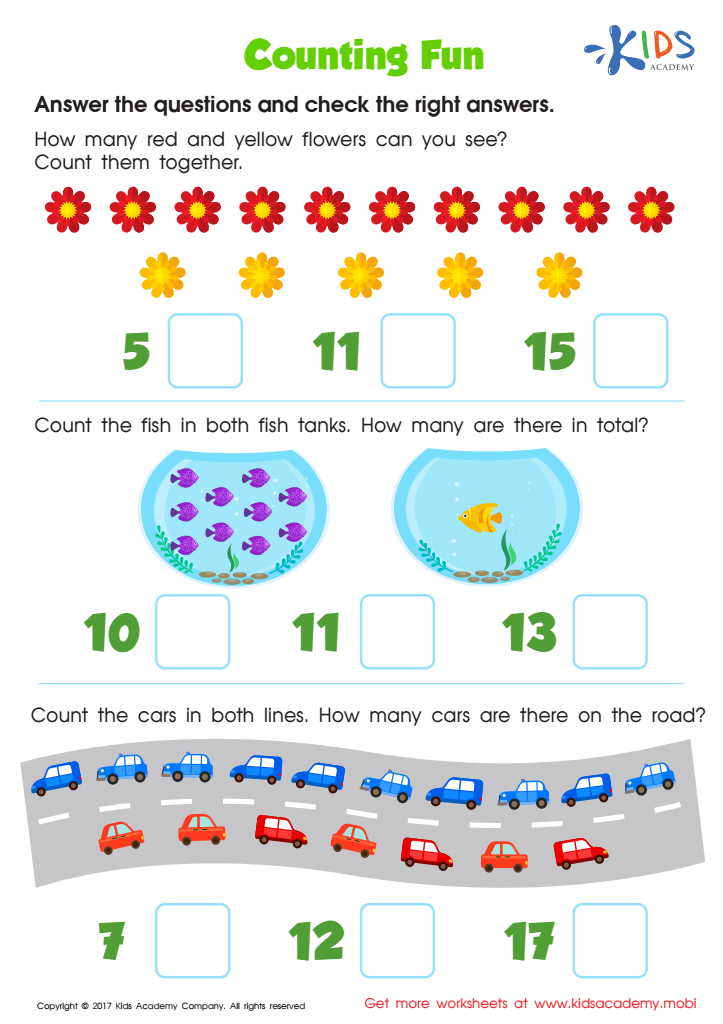

Counting Fun Worksheet
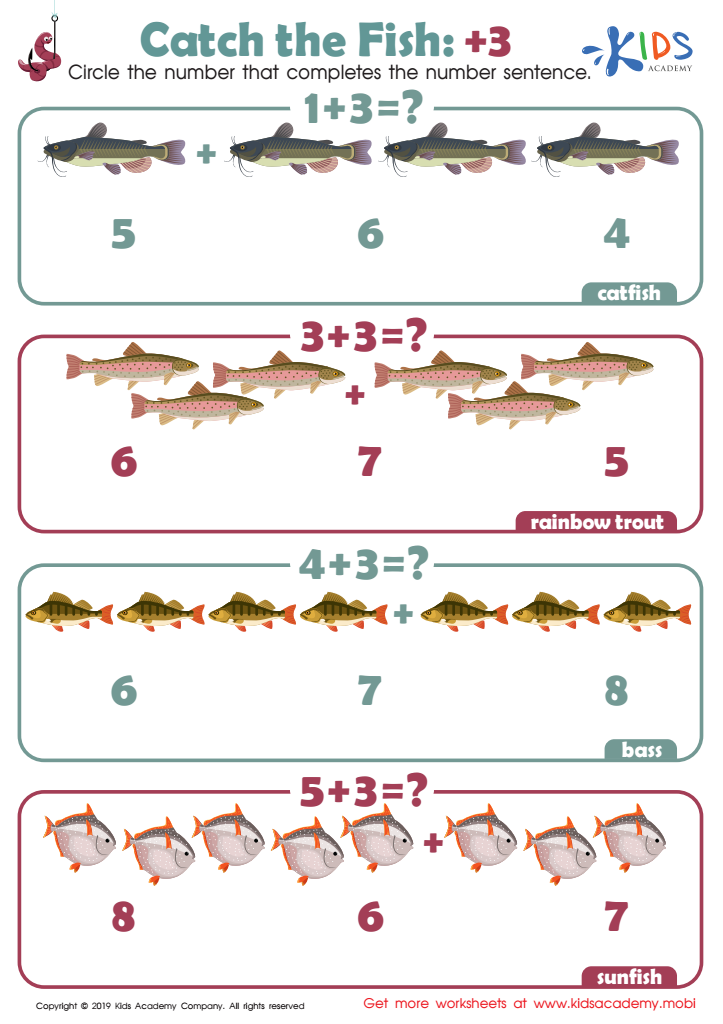

Catch the Fish: +3 Worksheet


Sort and Count to the Moon Worksheet
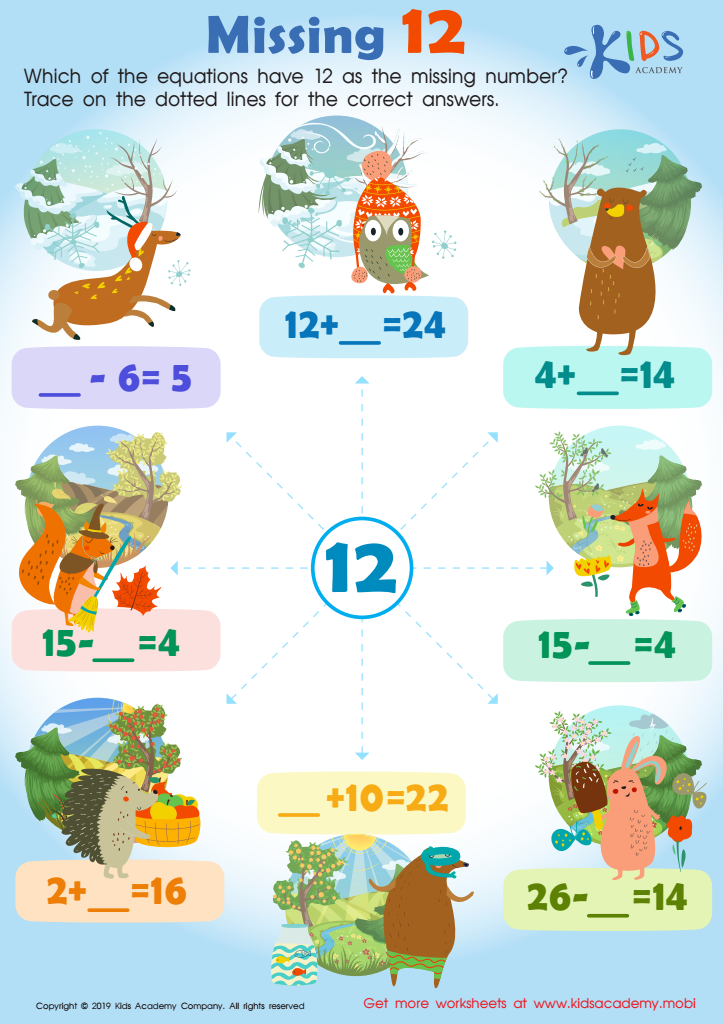

Missing 12 Worksheet
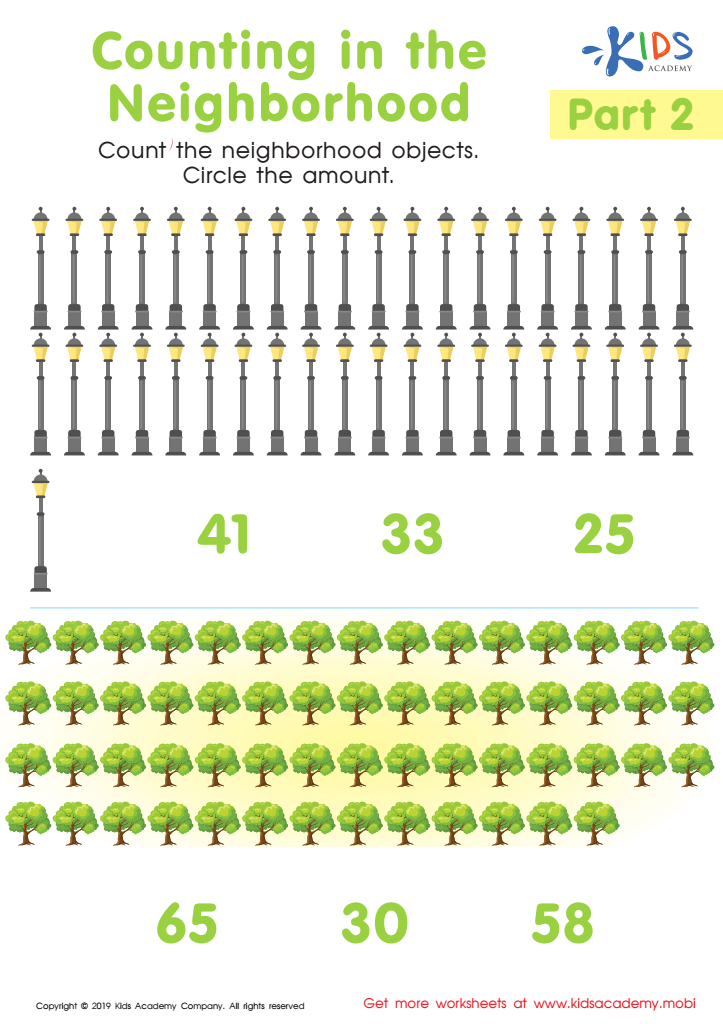

Counting In The Neighborhood Part 2 Worksheet
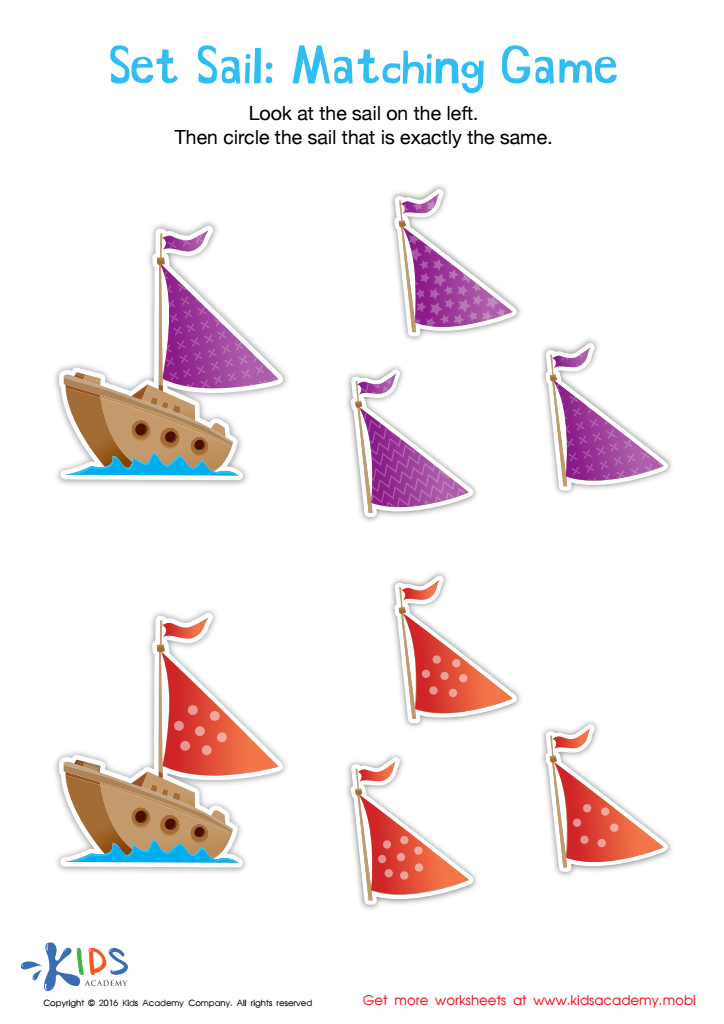

Set Sail Worksheet
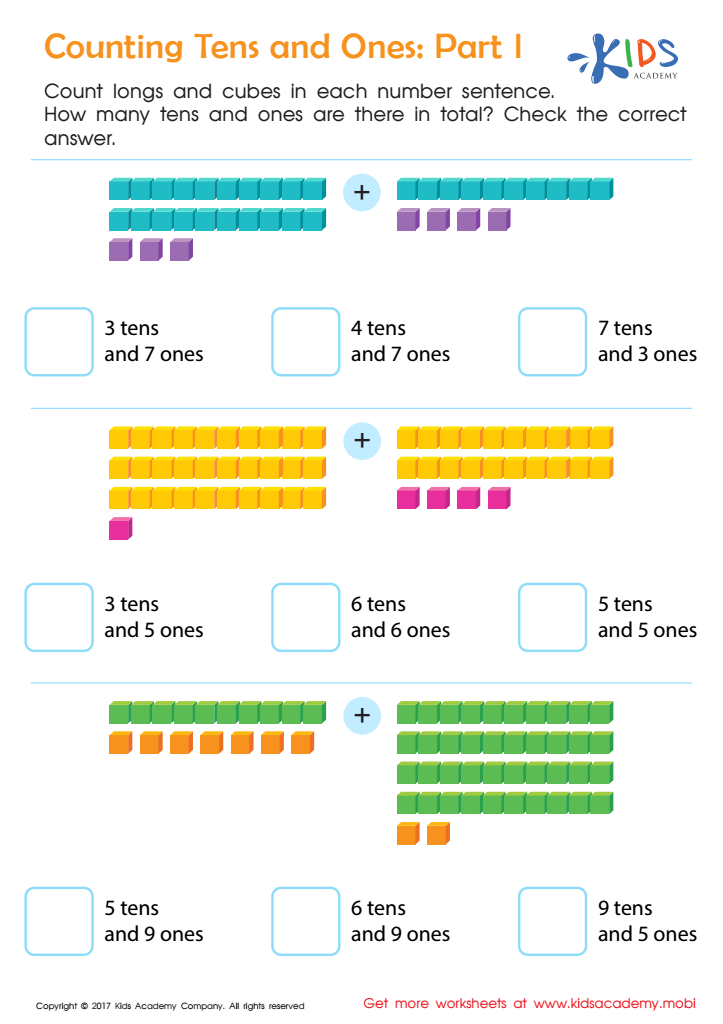

Counting Tens and Ones: Part 1 Worksheet
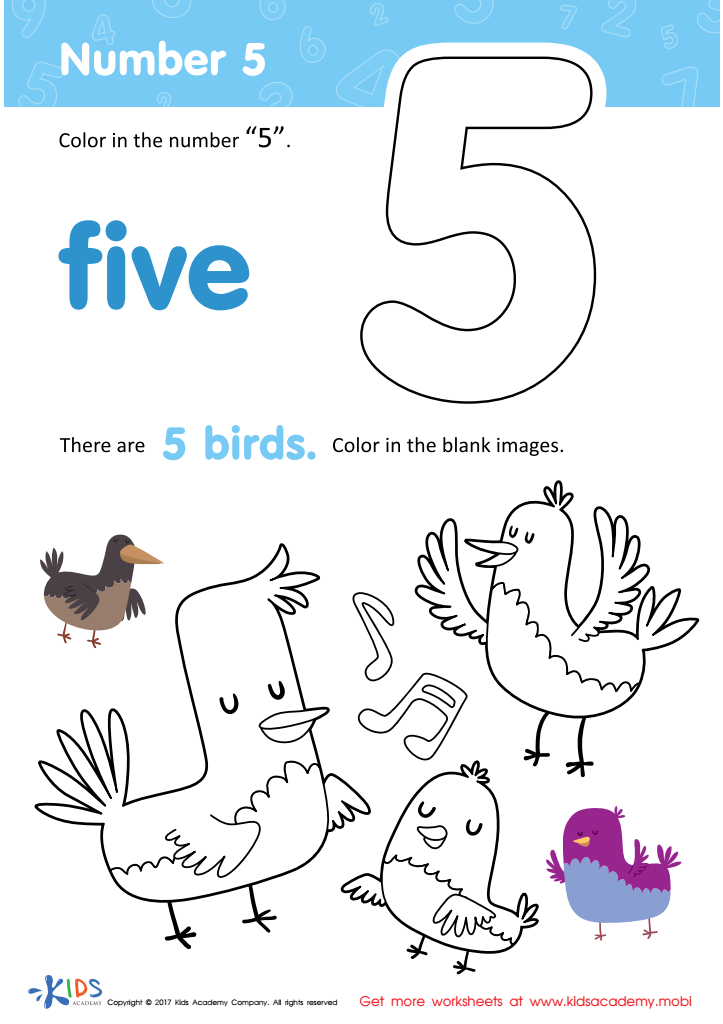

Number 5 Printable
Counting skills are foundational for early math development, making them essential for children aged 4-6. These skills lay the groundwork for a child’s future academic success and help foster critical thinking, problem-solving, and literacy. Mastering counting not only aids in understanding numbers but also enhances a child’s ability to grasp more complex math concepts such as addition and subtraction.
Furthermore, counting helps develop cognitive skills, improving memory and concentration. Engaging children in counting activities fosters their language skills as they learn to associate numbers with their corresponding quantities and verbalize them. Moreover, counting provides opportunities for social interaction, as children can practice counting in groups, promoting teamwork and communication skills.
Parents and teachers should prioritize counting skills in both formal and informal settings, incorporating games, songs, and everyday activities that involve counting. This approach builds a positive attitude towards math from an early age, setting children up for greater confidence and enjoyment in mathematics as they progress through school. As children learn to count, they also learn perseverance and resilience through practice, reinforcing their emotional and social development. Investing in counting skills early can significantly influence a child’s trajectory in education and their ability to navigate real-world situations.
 Assign to My Students
Assign to My Students
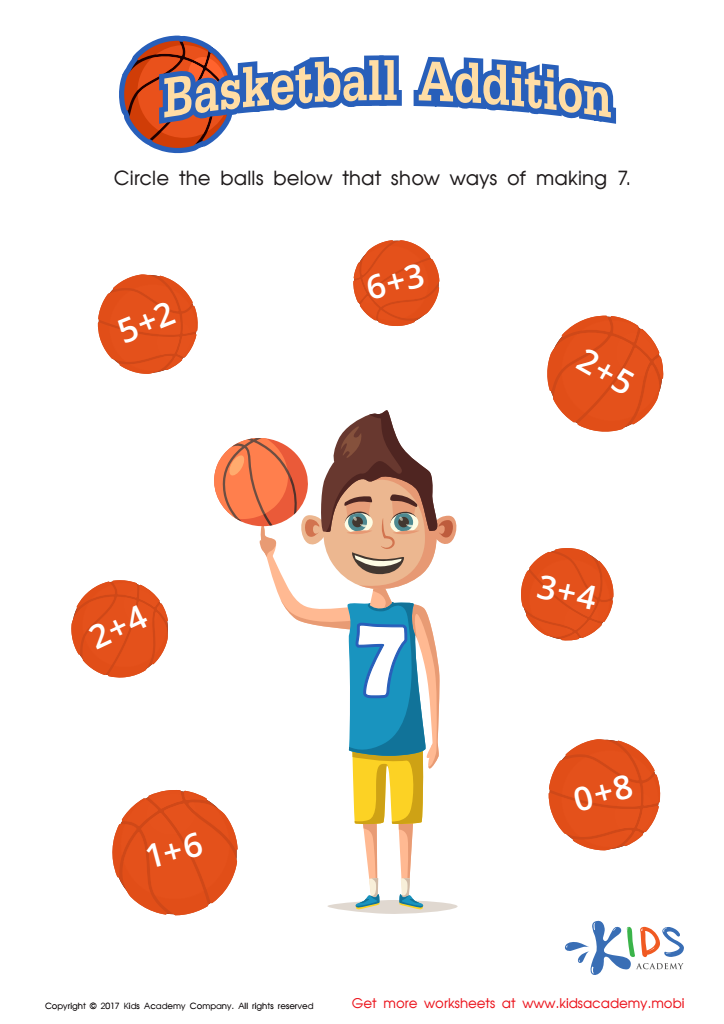
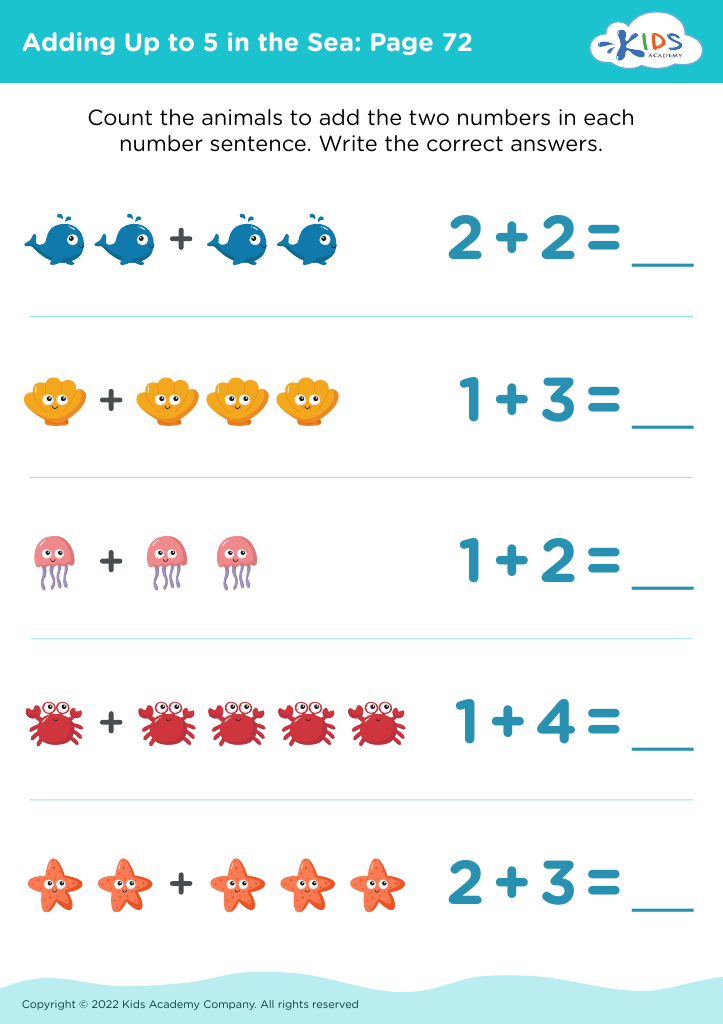
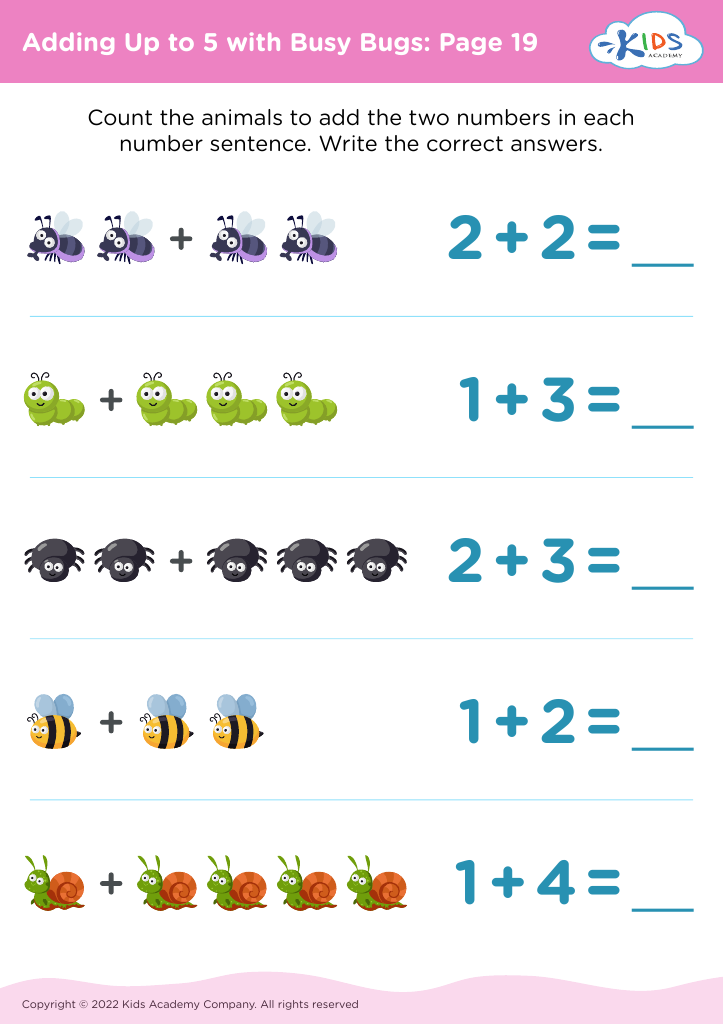



.jpg)


